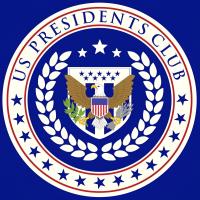Welcome to the US Presidents Club! Every product here tells a story of American history and leadersh... View More
About Me
US Presidents Club
posted a blog.
US Presidents Club expresses its profound sorrow at the passing of former President Jimmy Carter, who served as the 39th president from 1977 to 1981. His death marks the end of an era defined by his commitment to public service, humanitarian efforts, and dedication to peace.
Jimmy Carter, the 39th President of the United States, served from 1977 to 1981. His presidency was marked by significant challenges, including economic turmoil, energy crises, and international conflicts. However, his legacy extends far beyond his time in office. Today, he is often regarded as a symbol of humanitarianism and moral leadership, with a post-presidency that has further solidified his impact on both domestic and global stages.
One of Carter’s most enduring legacies is his commitment to human rights. He was the first U.S. president to prioritize human rights in foreign policy, advocating for the protection of individual freedoms around the world. This approach not only influenced U.S. relations with countries like China and the Soviet Union but also inspired subsequent administrations to consider human rights as a critical component of their foreign policy agendas. His emphasis on moral leadership helped to elevate global awareness regarding human rights abuses and laid the groundwork for future initiatives aimed at promoting democracy and freedom.
Carter’s presidency coincided with an energy crisis that forced Americans to confront their dependence on fossil fuels. In response, he implemented policies aimed at reducing energy consumption and promoting alternative energy sources. He established the Department of Energy and championed initiatives such as tax credits for solar energy installations. Although many of these efforts faced political resistance and were not fully realized during his presidency, they contributed to a growing national conversation about energy conservation and environmental responsibility that continues today.
Carter’s role in facilitating peace between Israel and Egypt through the Camp David Accords remains one of his most significant achievements. The accords led to a historic peace treaty in 1979, marking the first time an Arab nation recognized Israel’s right to exist. This diplomatic breakthrough not only altered the geopolitical landscape of the Middle East but also demonstrated Carter’s belief in negotiation over conflict—a principle that has influenced American diplomacy ever since.
After leaving office, Carter continued to be an influential figure through his extensive humanitarian work. He co-founded Habitat for Humanity, which has helped provide affordable housing for millions worldwide. Additionally, he has been involved in various health initiatives through The Carter Center, focusing on disease eradication and mental health advocacy. His dedication to public service post-presidency has earned him respect across political lines and solidified his reputation as a compassionate leader committed to improving lives globally.
We at US Presidents Club extend our heartfelt condolences to the Carter family during this difficult time. As we reflect on President Carter’s remarkable life and contributions, we are reminded of his unwavering belief in the potential for goodness within humanity. His legacy will continue to inspire future generations to strive for peace, justice, and compassion in all aspects of life.
Rest in peace, President Carter. Your light will continue to guide us.
Be the first person to like this.

